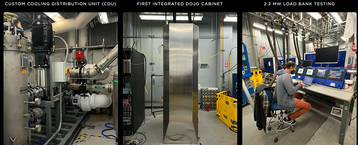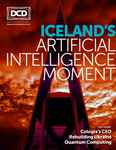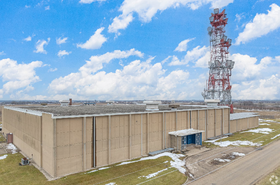One of the principles I am most proud of at DCD is our approach to pageviews.
Writers at DCD are not paid based on clicks, their performance is not rated on pageviews, and traffic is not our overall goal.
It is critical to ensure our incentives align with long-term quality content and not short-term clickbait. As counter-intuitive as it may be from a business perspective, I am thrilled that our team writes stories that maybe won’t get large numbers of readers - but are important to those readers.
I am also proud that when they write those stories, and others, the headlines try to be useful and factual - even if this means some readers won’t click through because they learned enough from the headline. We don’t run headlines like: ‘You won’t believe where Google opened its latest data center'. We will just say it is in Texas.
But, even with everything I have just said, I'd be lying if I claimed traffic had no impact on us.
Writers are insecure egotists by nature, and we crave an audience. When more people read our stuff, it makes us happy. Also, whether or not we have targets, there is a correlation between traffic and overall business performance.
If there are data center pros out there who don’t yet read DCD, we want to find them, understand their concerns, add them to our audience, and address those concerns. That is our job.
We're fortunate at DCD that web ads are only a small fraction of company revenue, and it'd still make sense to fund our editorial team even if ad revenue crashed to zero. But, clearly, if no one read our stuff, we probably wouldn't have a job. Finally, there's also the point that following traffic trends can make us better at our job - if our audience responds well to a piece, it could be an indicator that it would like us to do more in that area.
All of this preamble is to help you understand why a certain issue has been plaguing me these past few months: How to write about Elon Musk. [Side note: You may feel a little blindsided by this pivot to discussing Musk, but I felt that if I put him in the headline and got a million clickbait hits it would undermine my prior argument].
Coverage, without the hype
But here's the thing: How should DCD cover Musk? Until recently, we haven't had to mention him much, but in 2023 the world's richest man (and second-most polarizing one) has increasingly become entangled with data centers.
That causes several challenges. Our coverage has to remain neutral and factual, when it seems to be impossible to talk about the man without slipping into opinions - or triggering people who think we have.
Beyond that, Musk tests our stance on traffic because, simply put, he is a traffic machine. Put him or one of his businesses in a headline and watch the clicks roll in. For example, our article on Twitter refusing to pay AWS is currently our most-read article of the year. That can be intoxicating.
We could find reasons to write about him every day, and see traffic rocket faster than a SpaceX Falcon 9, potentially allowing us to hire more writers or command a better paycheck.
Doing it for that reason would be against what we stand for. But, at the same time, there are many genuine reasons why we should cover one of the planet's most influential men.
SpaceX has transformed the space industry. Starlink is both a significant political issue and something that impacts the Edge. Tesla is developing its own chips and purchasing large quantities of GPU as it builds at custom data centers.The acquisition of Twitter/X has led to data center closures, cloud contract disputes, and leads to a wider question of how much IT capacity and how many workers a company needs to function.
Each of these are legitimate lines of inquiry, but pose the risk of encouraging us to follow a hype train and let our audience down. Equally, providing context on a polarizing figure requires additional care - while coverage should recognize his accomplishments, they should similarly provide info on missed targets, over-promising, possible dishonesty, and his hostility and lack of cooperation with the press.
During Musk’s rise, the media failed in this task. It lionized his businesses’ accomplishments, condensing the work of thousands to make it seem like that of one man, and it overlooked troubling statements and actions. It treated off-the-cuff Musk pronouncements like the deep thoughts of a genius, helping create the image of a superhuman mind that does not - and could not - exist.
There were of course many great journalists that avoided this trap, and they have been vital in providing a more well-rounded picture of Musk. But the broader market forces of traffic chasing have led to a general decline in the quality of tech journalism, as entire publications pivoted to simply writing up Musk tweets and comments to bring in easy views.
This has been a symbiotic relationship - the media gained an audience, while Musk gained attention that he skillfully converted into investment and sales. But it is one that eats away at both parties, with one side losing any sense of quality, and the other apparently addicted to dangerously chasing that next attention high.
For us, and our small corner of the Internet, it requires introspection. Looking back, I think we perhaps gave too much coverage to Twitter’s outages in late 2022 and early 2023, enamored as we were by the spectacle of the chaotic acquisition. It was a quiet news period, but our resources could have been spent better elsewhere.
Conversely, last week Tesla launched its 10,000 GPU compute cluster for training self-driving vehicles. At the time, I decided not to cover it, concerned that we had already covered its existence and that we risked milking a story for easy clicks. But we regularly cover each stage of the design, build, and launch of facilities large and small, so that was the wrong decision.
Where I believe we did well was in our coverage of a Tesla job ad that claimed that the company would develop "first-of-its-kind data centers.” Many took this to suggest that Tesla was aggressively getting into the data center space, competing with hyperscalers, and that the sector would be the latest to be disrupted by Musk.
There’s no evidence of this, and our reporting reflected that skepticism, even though it made for a less tantalizing story.
As we move forward, Musk will likely continue to dominate headlines. An upcoming biography by Walt Isaacson will certainly reveal news that should be shared, as well as gossip that will be needlessly proliferated. Musk’s tweets will continue to grab eyeballs, and many will require context and fact-checking.
DCD’s coverage will, we hope, be through the lens of what we think is newsworthy - not what we think will boost our traffic. As time goes on, we will continue to review how we cover him, his businesses, and everything else that we write about.
But we also need you, our audience, to keep us honest. If you think our coverage strays, let us know.





